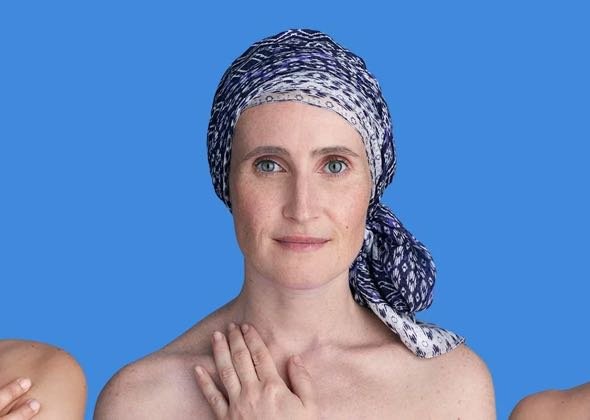SPOTSCAN+
INSTANT SKIN ANALYSIS
FOR BLEMISH-PRONE SKIN
POWERED BY AI,
DEVELOPED WITH DERMATOLOGISTS
The Power
Of Movement
Moving our bodies can benefit not only our physical health, but our mental health as well. As your cancer treatment progresses, it will become even more important to embrace and harness the power of movement. Not only can it improve your mood and help with insomnia, it also builds muscle strength, improves your balance, and keeps you as mobile as possible.
The importance of exercise for those living with cancer, both during and after treatment, has been proven many times in international academic studies. When possible, AFSOS recommends two to five weekly physical activity sessions for 10-20 to 40-60 minutes, plus warming, rest, and relaxation after the session. What is important is to choose the activity that suits you best and makes you feel good.
Pilates is a great example of a low-impact form of exercise. It will help you build muscle strength, reduce your stress and your tiredness, improve your mood and potentially increase your daily quality of life.
WHAT IS
PILATES
Pilates was developed by Joseph Pilates, who believed that mental and physical health are closely connected. His method was developed with influences including gymnastics, boxing and Greco-Roman wrestling. Pilates aims to strengthen the body with particular emphasis on core strength to improve general fitness and wellbeing.
Pilates is a fantastic entry-level form of exercise as there is an accessible starting point for every ability. Simple exercises that are based on strengthening your muscles can be done on the floor, and you can use apparatus to support you if you are a complete beginner.
PILATE EXERCICES
For a regal posture
Seated on a chair, place your feet apart and firmly on the ground.
Tilt your pelvis back, bringing your belly button in.
Then gently arch your back by tilting your pelvis forward and stretch your back upright.
You can place your hands on each side of your lower back during the process.
Repeat the movement several times and make sure to breathe out when straightening your back.
The result?
This exercise helps overcome the unpleasant effects of the prolonged sitting position that can, for instance, lead one to slouch while seated in a waiting room.
PILATE EXERCICES
For back pain relief
Sitting down, place your feet wide apart (further than the length of your pelvis) and firmly on the ground.
Place your hands on your shoulders and stretch your back upright.
While breathing out, tilt your trunk forward and stop when you feel your back is about to roll.
Leaning with your back straight and between your thighs, the muscles of your back will work to keep your trunk well aligned, despite the inclination.
When you breathe out, tighten your stomach (bringing your belly button in against your spine).
The result?
You will obtain a proper core building of all your abdominal and lower back muscles.
Choosing Pilates
Before, During And After
Your Cancer Treatment
Embarking on regular Pilates can improve your posture, muscle tone, balance and joint mobility, as well as relieve stress and tension.
If you have had breast cancer surgery, for example, Pilates can strengthen the muscles in the shoulders and the middle back. You can do Pilates in many different positions, to suit your circumstances and ability. It incorporates deep rib cage breathing, which can stretch out scars and encourage lymphatic drainage.
Because Pilates shifts the focus from the damaged areas of your body and reinforces what you can do, rather than what you cannot, it can help you to appreciate the movement your body is capable of and its capacity to heal.
The more active you are the greater the benefits. Do not forget to consult your doctor before taking on anything that is considered to be high impact.

Did you
know?

You can do some Pilates exercises while you are in a waiting room or during chemotherapy while lying down, breathing consciously.
A few simple exercises are enough to wake up your joints and muscles.


